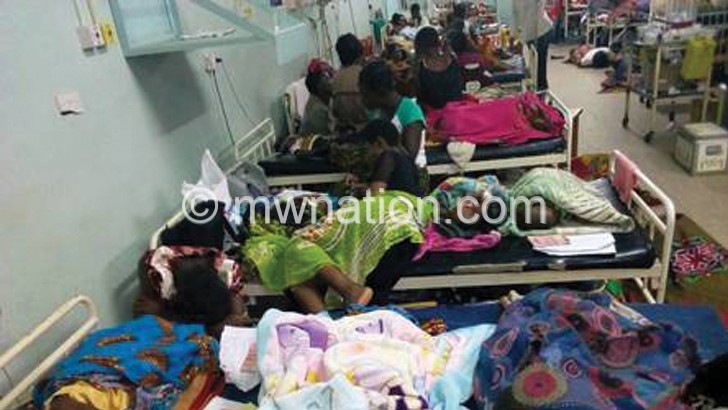If donors pull out of health, it will be genocide
Let me be blunt. It could take a century, if ever, for Malawi to wean itself of donor aid in the health sector.
The facts are staggering.
Today, donors provide the bulk of resources to the sector, accounting for 58.6 percent of Malawi’s total health expenditure.

At some point—between 2012 and 2015—development partner contribution to health stood at 61.6 percent of the country’s total health spending. They are cutting back—sharply.
The worst news is that as donor funding to the health sector dwindles, you would expect government or public sector spending on health to be increasing. It is not.
In fact, public funds into health have dropped from 25 percent of total health spending to 23.9 percent.
So, donor support to health is plummeting. It may even disappear altogether if the current statements from Western diplomats are anything to go by, God forbid.
Our own government is slowly, but surely withdrawing from the health sector, leaving us to our own poverty-stricken fate controlled by for-profit healthcare providers.
Now that is scary. And the ground is already shifting.
Private health expenditure—comprising household out-of-pocket expenditure, medical insurance, and other corporate funds—surged from an average of 13.4 percent of total health expenditure between 2012/13 and 2014/15 to 17.5 percent of total health expenditure by 2018, according to the Malawi National Health Accounts report released by the Ministry of Health in August last year.
Based on this report, the major source of increases in private expenditure was the rise in household out-of-pocket expenditures on health from an average of 8.6 percent of total health expenditure between 2012/13 and 2014/15 to 12.6 percent between 2014 and 2018.
“This suggests that the sustainability of healthcare financing in Malawi is relatively weak as it relies on a high percentage of funds from external sources and high out-of-pocket expenditure,” states the report.
So, when donors say that Malawi must come up with an exit strategy for getting out of their dependence on donors to fund the health sector, they are basically telling individual Malawian households—more than half of whom live well below the poverty line—that they should largely be on their own by covering up to 75 percent of their healthcare expenses.
Is that even moral to expect someone who cannot even feed himself or herself to pay up to 75 percent of his or her healthcare bills?
As of now, at 58.6 percent, Malawi is among the highest donor-dependent countries among low income countries globally when it comes to health financing against an average of 27 percent for its peer nations.
What do you think will happen when donors walk out of the sector?
That gap in financing—even if it is just by a few percentage points—will automatically be transferred as a burden for individual households to bear—90 percent of whom are in rural areas, dirt poor and, unlike their fellow citizens in cities, have few, if any, alternatives to government run, or is it run-down, health facilities.
Already, according to the Ministry of Health, the percentage share of health funding from households with respect to total domestic resources, which is a source of inequities in financing, has been increasing over the past decade.
For example, says the report, health financing contributions by households’ out-of-pocket payments relative to domestic resources averaged 30.5 percent between 2014 and 2018.
This percentage must be higher today because the collapse of the country’s public health system—with criminally inadequate drugs and equipment—has forced people to sacrifice everything they have to go to private hospitals where they are charged an arm and a leg to stay alive.
“A key possible reason for this [increased household spending on health] is the unavailability of essential medicines or commodities in public facilities, which forces individuals to buy medicines themselves and/or seek care elsewhere where they pay out-of-pocket,” says the report.
This is how bad government’s lip service to universal health care is. This health financing joke is not just counter to World Health Organisation’s expectations, but also works against Malawi’s own healthcare system’s high sounding policy goal of achieving high-quality, equitable, affordable, universal health coverage, with the aim of improving health status, financial risk protection, and client satisfaction of its citizens. Yet, for years, government has been hoodwinking Malawians with nominal increases in annual health budgets, but in real terms the decrease has been shocking—dropping 13 percent between 2014 and 2018 at constant prices.
In fact, there was a time—specifically in the 2011/12 financial year—when Malawi was one of only six African countries to have passed the 15 percent mark (percentage) of National Budgets that the continent’s leaders committed to providing to the sector in the 2001 Abuja Declaration.
But since then, the country’s health budget has remained under 10 percent of total spending.
So, yes, an exit strategy we must have, but the figures show that if donors abandon Malawi’s health sector even in the next decade, they may as well declare Malawi a mass graveyard because the move will surely lead to genocide.



